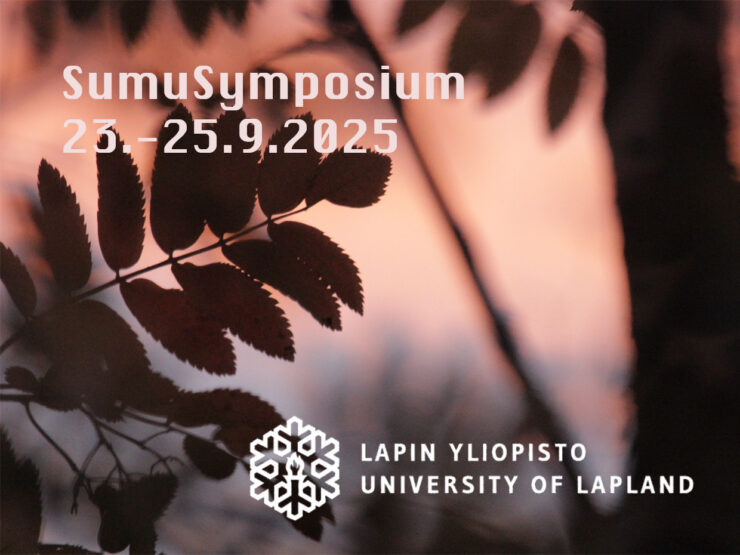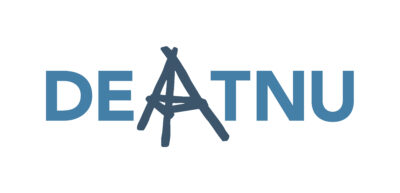Sustainable Naturecultures and Multispecies Future Symposium

Call for papers
We invite abstracts related to three streams (see below)
Length: 300 words
Submission: sumusymposium@ulapland.fi by April 23th, 2025
Please include in the email subject line which stream you are submitting to. In your abstract text you should also clearly demonstrate how your abstract links to the stream. The three streams at the SuMU symposium are:
Naturecultures in practice
Naturecultural thinking problematizes the modernist ontological divide between nature and culture by highlighting their inseparability in socio-ecological relationships that are both biophysically and socially formed. It underlines that nature and culture are mutually inclusive of one another, sharing vital connections in which they are not only constituted together but also co-dependent and co-created. Thus, the naturecultural approach offers an understanding of being-in-the-world which has the potential to offer new insights into multilayered, socio-ecological relationships.
The aim of this Naturecultures in practice stream is to shed light on the materiality of naturecultures through welcoming contributions of multidisciplinary naturecultural research. We encourage contributions that engage with a wide range of theoretical, empirical and methodological issues on the subject of the naturecultural practices from various disciplinary and inter-disciplinary perspectives. Also, non-traditional formats (e.g. artistic research) and presentations taking place outdoors and/or short outdoor activities (e.g. collective research experiments, performances and creative practice) are warmly welcomed!
Multispecies Knowing
Multispecies approach can be seen as an umbrella term for scholarly approaches seeking to challenge human exceptionalism inscribed in western scientific tradition. Rather than taking individual entities or species as units of inquiry, multispecies research explores how other species and more-than-human communities engage with and depend on one another. It sets out to disrupt the homogenising and generalising categories of “human” and “non-human” by emphasising the ways in which socio-ecological impacts, risks and injustices are unequally divided between species and regions. Multispecies approaches question the very assumption of human as the only being capable of ‘knowing’ by cultivating the arts of curiosity and attentiveness towards diverse ways of thinking, imagining, and acting in knowledge creation.
The aim of this Multispecies Knowing stream is to bring together transdisciplinary research and art to gather around the common multispecies matters of concern, interests, and care. The stream encourages exploring epistemological and methodological features of the multispecies approach, and welcomes, for instance, contributions on multispecies ethnography, non-representational methodologies, scientific fabulation, multispecies rights and justice, interspecies solidarity, and multispecies storytelling. The papers, performances, and activities may address a wide range of conceptual, epistemological, and methodological issues that seek transformative, speculative, and/or situated multispecies engagement with the ongoing societal transformations and ecological emergency. Also, presentations taking place outdoors and/or short outdoor activities (e.g. collective research experiments, performances and creative practice) are warmly welcomed!
Indigenous relational ontologies
Indigenous ontologies and epistemologies are based on relational understanding, which means that humans are indivisible from, and co-becoming with their environment and its entities, such as other animals, plants, land and water. Accordingly, Indigenous social, political and legal worlds encompass other relational beings as agentive subjects with whom humans have reciprocal responsibilities. Posthuman thinking is greatly indebted to Indigenous relational ontologies, however Indigenous perspectives often seem to remain overlooked in social sciences. What is more, global environmental politics is still very state- and anthropocentric due to which the rights and wellbeing of non-human beings are to a large extent ignored.
The Indigenous relational ontologies stream focuses on the various Indigenous human-environment relationalities, reciprocal responsibilities, as well as Indigenous political thought that governs multispecies relations. A central theme to be discussed in the stream is also how political institutions could be restructured to advance Indigenous self-determination and multispecies justice from which Indigenous relational perspectives are mutually intertwined. The stream welcomes contributions from Indigenous perspectives or research that support Indigenous worldviews and ways of knowing, free from the constraints of disciplinary boundaries or academic presentation formats. Therefore, we also warmly welcome and encourage presentations that embrace artistic, visual, performative, or traditional storytelling methods offering creative and immersive ways to convey ideas. Also, presentations taking place outdoors and/or short outdoor activities (e.g. collective research experiments, performances and creative practice) are warmly welcomed!

